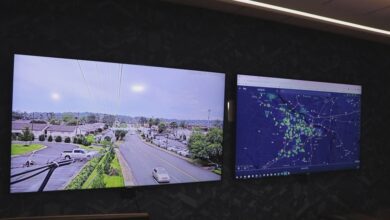Study including WVU and Marshall analyzes cyber threats to Artificial Intelligence systems | 104.5 FM & 1440 AM | The Voice of Morgantown

MORGANTOWN, W.Va. — Researchers from West Virginia University (WVU), Marshall University, and Florida International University are exploring the cybersecurity needs of artificial intelligence technologies with a $1.75 million grant from the Defense Advanced Research Projects Agency (DARPA).
Professor and Chairman of the Statler College of Engineering and Mineral Resources in the Lane Department of Computer Science and Electrical Engineering, Anurag Srivastava, said the AI-CRAFT project is intended to develop ways to secure the emerging technology. Artificial intelligence is developing rapidly and being pushed into larger real-time applications.
“Our goal is to look at what those are, and how do I defend myself if someone is trying to hack into or make the AI behave in a way it is not supposed to behave?” Srivastava said.
The teams are building the artificial intelligence systems while engineering security and safety as they are deployed. The complexity results from the evolution from simple calculation systems used a decade ago to the addition of millions of data points as AI systems are taught to think like the human brain.
“Look at this from a new point of view now; what is the attack vector now?” Srivastava asked. “Can someone reverse engineer the AI? Can someone poison the AI so it behaves in a way it should not?”
AI technologies have quickly grown from application in autonomous cars to use in very lifelike robots and vital systems like public utilities. The research also includes developing secure data practices, access controls, and continuous monitoring to assess the security and usefulness of AI systems.
“Especially those that will be used to operate critical systems like robots or the power grid,” Srivastava said.
On the academic side, students will have many hands-on opportunities in labs and training platforms, designed to equip students with the skills and knowledge needed to thrive in a rapidly evolving cybersecurity industry.
“Other than solving this problem for complex systems like a power grid, robotics, or autonomous cars, our goal is also to teach it because this is also a new topic,” Srivastava said.
Officials from WVU, Marshall University, and the U.S. Department of Defense will break ground on the new Institute for Cyber Security in Huntington on May 17.



